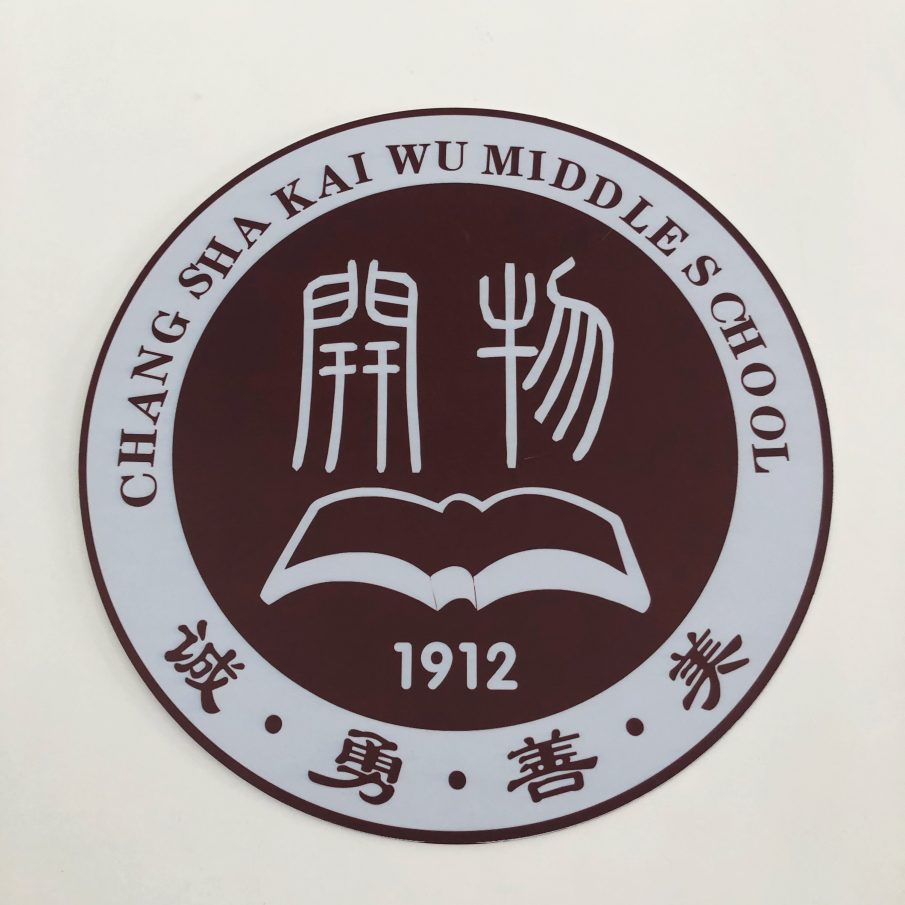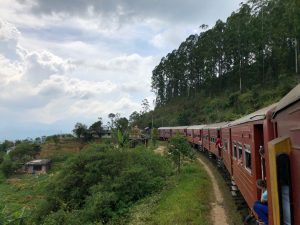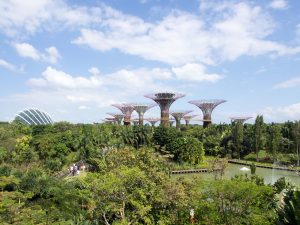Originally, Jesse and I had planned to leave China after roughly 30 days (motivated by the initial impression that our visa would limit us to such a timeline), but a few factors changed along the way. First, we discovered that our 10-year multi-entry visa allowed visits of up to 60 days. Secondly, I found out that my father, along with his four siblings, would be visiting Changsha – the capital of Hunan province, where my father’s family hails from – at the end of August with the hopes of visiting a school my great grandfather had built near the turn of the century. That sealed our fates, and we were in for an extra week in China.
Growing up in the states as first-generation, I had a bit of a mixed relationship to my heritage. As a young child, I wanted to fit in as much as possible – I don’t look a lot like my mostly white classmates, so I wanted to focus on how I could be similar to them. Spending my weekends at Chinese school learning Mandarin or talking to relatives who had accents that were quite frankly made fun of in popular culture didn’t fit into this square narrative. So, I shunned Chinese school and didn’t ask my relatives too many questions about our family history or the Chinese culture. But as I got older, around those ever formative teenage years, I started to grow more curious about my family history and developed a renewed interest in learning the language. This curiosity continues to this day, and one of the goals of this trip to Changsha was to learn a bit more about my ancestors and to get my dad to open up about his early childhood in China.
We arrived into Changsha via train (non high-speed – we were arriving from Zhangjiajie, which only has traditional trains going in and out), checked into our hotel, and met up with my folks pretty quickly. We headed out to Taiping Street, a pedestrian shopping district, and as we strolled along, I gently prodded my father for details about his memories of Changsha and our family’s early history there. Getting memories out of people may not seem like such a difficult thing, but war and conflict can change all that. I’d never asked my dad in too much detail about his child because at first I wasn’t interested. Then, once I was, I was scared. I knew that his childhood had not been easy, and I didn’t want to upset him by having him dredge up painful memories. But as he gets older, the imperative of getting my family’s history recorded looms large for me. My only concern is that now time and old age may have caused those memories to be gone for good. Nonetheless, this stroll was a great way to get my dad to open up what he remembered from his youth in China, and I relished every story, memory, and anecdote he had to share.
The following morning, Jesse and I, my mom and dad, and 3 of my dad’s siblings (unfortunately, one of my dad’s brothers needed last minute surgery and wasn’t able to make it) gathered to begin the caravan to find the school my great grandfather built so many years ago. As we drove, I discovered that no one knew exactly where the school was. Everyone had a general idea that it was in a suburb called Kai Wu, but any specifics beyond that were a mystery. Back in the day, Kai Wu was more rural farmland, and my great grandfather had built the school for the children of his employees who lived in the area and worked the farmland he owned in Kai Wu. My father and aunt had even attended the school for one academic year as primary school children back in the mid 40’s. We also were not entirely sure the school would even still exist; or if it did, what shape it would be in considering it was built by a member of the wealthy upper class – a class that was the target of numerous communist cleansings in the 50’s and 60’s.

After a few detours, a lost member of the caravan, and about 90 minutes of travel my dad spotted a sign reading “Kai Wu Middle School.” The only solid lead we had, we followed the signs that lead us to a remarkably well maintained building, the Kai Wu Middle School. After a bit of discussion with the man at the gate, followed by some waiting, a teacher greeted us at the door and we were graciously allowed in for a tour. The facilities were in remarkable shape. We discovered that the buildings had indeed fallen into disrepair since the revolution, but that a private citizen’s group had recently made a bid to take the school over from the government and done a bit of a refurb. Many of the old buildings were still there, and in recent years there had been some structural updates as well as a fresh coat of paint.

While touring around, we turned a corner, and I heard my mother shout my great grandfather’s name. We all turned to see his name engraved in large characters on the side of a building. Our guide informed us that the building was named after him and that many of the students know his name as the founder of the school and as a pillar of the community. In addition to the dedication on the front face of the building, the backside of the building bore a plaque complete with his photo and a full biography. This was the first time I had ever heard his name, let alone seen a photo of him – it was all incredibly overwhelming, to say the least.
At one point, our tour guide – who at this point was now the principal of the school – pointed to my father and told him he bore a strong resemblance to my great great uncle, whom the principal had seen pictures as part of the school’s history. He didn’t say anything, but I could see a light in my father’s eye upon hearing about his links to his ancestors, family history being something he always strongly valued. We capped off the visit with a walk behind the school where my great grandfather’s body is interred. Later, I learned that my grandmother had visited the school in the 80’s, almost a decade after Nixon’s infamous visit marking the opening of China to the west, to make sure the gravesite was well tended.
The afternoon ended with grateful thanks on my family’s side, and gifts on the school’s side. The administrators of the school were so appreciative of our visit that they gave all of us thermos’ with the school’s logo as well as a few other gifts. It was surprising for me to think that they would be grateful of our visit, considering how grateful I was, all of us were, for the their time and stories about the school and my great grandfather.

It was an afternoon of connections to family I had never known, but a family history that I was thirsting to know more about. So much of our documented family history has been lost to war – photographs, letters, written genealogies – that it was a moment of connecting to my ancestors I never thought I would get to experience. As Jesse and I discuss the stage of our life after this trip, beginning a family, raising children to be mindful of their culture and heritage, this trip looms large for me. I hope to be able to bring our children here, to learn about their ancestors in China, how they chose to give back to those who have less opportunity than them. I hope to translate my great grandfather’s biography from that plaque on the wall and tell our children who he was, so that they can be proud of their ancestors and strive to live life in their path, one of charity and kindness to all.






Comments
Love this Ceci and the site!! You should submit an article to Afar magazine!